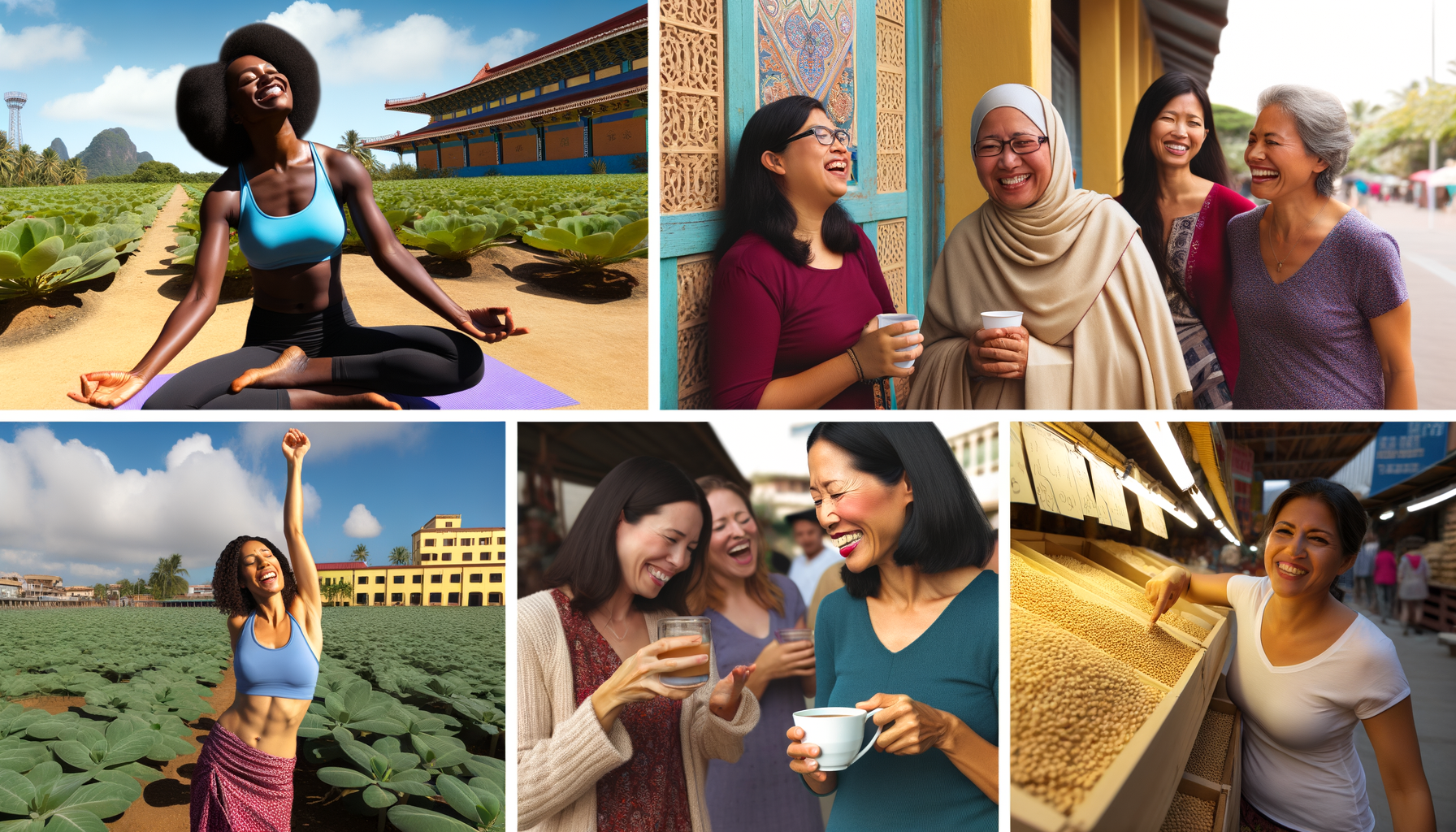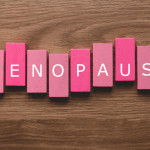Menopause is a natural biological process that marks the end of a woman’s reproductive years. It is clinically defined as the cessation of menstruation for 12 consecutive months, indicating the end of ovarian follicular function. This transition typically occurs between the ages of 45 and 55 but can vary widely. Menopause is not just a single event but a gradual process that can be divided into the perimenopausal phase, leading up to menopause, and the postmenopausal phase that follows. The biological significance of menopause lies in the hormonal changes that accompany it, particularly the decline in estrogen and progesterone levels, which can affect a woman’s overall health and well-being.
Global Perspective on Menopause
Menopause is a universal experience for women, yet its onset, symptoms, and cultural interpretations vary globally. While the biological markers of menopause are consistent, factors such as genetics, health, lifestyle, and environmental influences can affect the timing and experience of menopause. Worldwide, the average age of natural menopause is between 45 and 55 years, but certain conditions and interventions, such as surgery or chemotherapy, can induce menopause earlier. The global population of postmenopausal women is growing, reflecting the increasing life expectancy and highlighting the importance of understanding menopause in the context of aging and health care.
Objective of the Article
The objective of this article is to explore the multifaceted nature of menopause across different cultures and societies. By examining the biological underpinnings, cultural interpretations, and individual experiences of menopause, we aim to provide a comprehensive understanding of this significant life stage. We will delve into how lifestyle factors influence menopausal symptoms, the role of culture in shaping the menopausal experience, and the comparative analysis of menopausal experiences around the world. Ultimately, this article seeks to summarize cross-cultural findings, discuss implications for health and wellness, and suggest future directions in menopause research.
Cultural Interpretations of Menopause
Western Views and Misconceptions
In Western societies, menopause is often medicalized and associated with negative connotations such as “reproductive failure” or “ovarian failure,” implying a disease state rather than a natural biological transition. This medicalization can overshadow the natural aspect of menopause, leading to misconceptions that it requires medical intervention. The Western narrative frequently emphasizes the loss of fertility, youth, and sexual attractiveness, which can contribute to a more negative experience for many women. Additionally, the prevalence of terms like “hot flushes” in the English language reflects a focus on the discomforts of menopause, rather than its potential for positive transformation.
Menopause in Non-Western Cultures
Contrasting with Western views, many non-Western cultures approach menopause with different attitudes and beliefs. In Traditional Chinese Medicine, menopause, or juejing, is seen as a natural part of aging that requires balance through diet and herbs. The Japanese term konenki reflects concepts of energy, regeneration, and renewal, framing menopause as a time for transition and new purpose. In Islamic, Indian, and most African societies, menopause can signal an increase in social freedom, as women are no longer bound by strict gender roles. Similarly, Native American and Aboriginal and Torres Strait Islander cultures view menopause as a natural life transition, with postmenopausal women gaining respect as “women of wisdom” or enjoying greater status.
Cultural Significance and Status Changes
The cultural significance of menopause varies greatly around the world. In some cultures, the cessation of menstruation can lead to an increase in a woman’s status within her community. For example, Mayan Indian women look forward to menopause for the greater freedom it brings, as it marks the end of strict menstrual taboos. In contrast, some cultures may have mixed feelings about menopause; for instance, contemporary Greek culture values old age but also associates menopause with a sense of being ‘out’ of mainstream society. The cultural context can significantly influence how menopause is perceived and experienced, with some societies recognizing it as a time of increased autonomy and respect, while others may view it with ambivalence or negativity.
Disclaimer: It is important to note that these cultural interpretations are not universal and there is considerable diversity within populations. The experiences and attitudes toward menopause can vary widely even within a single cultural group.
Symptoms and Experiences Across Cultures
Common Symptoms in Western Societies
In Western societies, menopause is often associated with a range of symptoms that can significantly impact a woman’s quality of life. Approximately 75% of women experience hot flashes, and many others report sleep disturbances, vaginal dryness, weight gain, and mood swings. Despite the prevalence of these symptoms, there is a notable stigma surrounding menopause, leading to silence and discomfort in discussing these experiences. This cultural reticence can exacerbate the challenges women face, as they may feel isolated or unsupported during this transition.
Variations in Menopausal Symptoms Globally
While menopausal symptoms are a global phenomenon, their frequency and impact vary widely across different cultures. For instance, in Japan, only 25%-50% of women report experiencing hot flashes, which is significantly lower than in Western countries. This difference is often attributed to dietary factors, such as a high intake of soy, and a positive cultural attitude towards menopause, viewing it as a time of renewal and energy. In contrast, women in India and the Middle East may experience menopause as a time of liberation and increased social freedom, with symptoms like heavy bleeding and joint aches being reported but often overshadowed by the positive cultural connotations of this life stage.
Anthropological Studies on Menopause
Anthropological research has provided valuable insights into the menopausal experiences of women from diverse cultural backgrounds. Studies have shown that in some non-Western cultures, menopause is not medicalized but rather seen as a natural and expected life transition. For example, Native American and Mayan Indian women view menopause as a time when they become ‘women of wisdom’ or gain greater freedom, respectively. These cultural perceptions can influence the subjective experience of menopause, often leading to a more positive outlook and less emphasis on the physical symptoms. Additionally, the role of social support, dietary habits, and lifestyle factors in shaping menopausal experiences has been highlighted, suggesting that the interplay between biological changes and cultural context is complex and significant.
The diversity in menopausal experiences around the world underscores the importance of considering cultural attitudes and beliefs when addressing menopause. It is clear that while hormonal changes play a role in symptomatology, the social and cultural milieu in which a woman lives can greatly influence her experience of this life stage.

Lifestyle Factors Influencing Menopause
Diet and Hormonal Changes
The relationship between diet and menopause is complex, with certain dietary patterns influencing the hormonal changes that occur during this transition. A diet rich in fruits, vegetables, and whole grains, which are high in fiber, has been associated with a later onset of menopause. Conversely, diets high in refined carbohydrates and sugars may contribute to earlier menopause. The consumption of polyunsaturated fats, particularly omega-6 fatty acids, has been linked to earlier menopause, while omega-3 fatty acids found in fish may have a protective effect.
Phytoestrogens, plant-derived compounds with estrogen-like activity, are found in foods such as soy, flaxseeds, and certain beans. These compounds can bind to estrogen receptors in the body, potentially alleviating some menopausal symptoms. However, the impact of phytoestrogens on menopause is still not fully understood, and their effects may vary depending on an individual’s existing hormone levels and overall diet.
Exercise and Menopausal Symptoms
Regular physical activity can play a significant role in managing menopausal symptoms. Exercise has been shown to improve mood, reduce hot flashes, and enhance quality of life. Weight-bearing and muscle-strengthening exercises are particularly important for bone health, as menopause is associated with an increased risk of osteoporosis. Additionally, exercise can help combat weight gain, which is common during menopause due to a decrease in metabolic rate.
While vigorous exercise may be beneficial for some women, it’s important to note that excessive physical activity can lead to hormonal imbalances and potentially contribute to earlier menopause. Therefore, a balanced approach to exercise that includes both aerobic and strength training is recommended.
Sleep Patterns and Menopause
Sleep disturbances are a common complaint among menopausal women, with changes in sleep patterns often exacerbated by symptoms such as night sweats and hot flashes. Poor sleep quality can, in turn, worsen other menopausal symptoms, creating a challenging cycle. Maintaining good sleep hygiene is crucial during this time. This includes establishing a regular sleep schedule, creating a comfortable sleep environment, and avoiding stimulants like caffeine and nicotine close to bedtime.
Some dietary choices can also impact sleep quality. For instance, consuming a high amount of caffeine or alcohol can disrupt sleep patterns. On the other hand, certain foods that contain tryptophan, magnesium, and vitamin B6 may promote better sleep. These nutrients are involved in the production of melatonin, the hormone that regulates sleep-wake cycles.
In conclusion, lifestyle factors such as diet, exercise, and sleep have significant impacts on menopause and its associated symptoms. By making informed choices in these areas, women can better manage the transition and maintain overall health and well-being during menopause.

THEN IT CONTAINS TOXIC CHEMICALS. WHY RISK IT GETTING SICK? GO CHEMICAL FREE.
The Role of Culture in Menopausal Experience
Cultural Attitudes and Their Impact
The perception and experience of menopause are profoundly shaped by cultural attitudes. In Western societies, menopause is often medicalized and associated with negative connotations such as “reproductive failure,” which can lead to a perception of menopause as a disease state rather than a natural life transition. This medicalization, combined with a societal emphasis on youth and fertility, can result in women experiencing menopause as a loss of femininity and vitality. Conversely, in cultures where age is revered and fertility is not the sole measure of a woman’s worth, menopause can be seen as a time of increased status and freedom. For example, in some non-Western cultures, postmenopausal women are relieved from strict gender roles, leading to a more positive experience and potentially fewer reported symptoms.
Menopause as a Transformative Phase
Menopause is not universally experienced as an ending but can also be a transformative phase, marking a new chapter in a woman’s life. In Japan, the term ‘konenki’ reflects energy, regeneration, and renewal, framing menopause as a time for transition and new purpose. Similarly, the Indian Ayurvedic system views menopause as a critical period for prioritizing self-care across all facets of life. These perspectives highlight the potential for menopause to be a period of empowerment and personal growth, rather than a decline to be managed.
Cultural Practices and Freedom Post-Menopause
Cultural practices around menstruation and fertility can significantly influence the menopausal experience. In societies where menstruating women face restrictions, the cessation of menstruation can lead to greater freedom and anticipation of menopause. For instance, Mayan Indian women, who are subject to strict menstrual taboos, often look forward to menopause for the increased liberty it brings. In contrast, cultures that place a high value on youth may view menopause negatively, despite the removal of menstrual taboos. This dichotomy underscores the complexity of cultural influences on menopause, where the biological changes are interwoven with social and psychological factors.
Ultimately, the role of culture in shaping menopausal experience cannot be overstated. It influences not only the subjective experience of symptoms but also the social status of menopausal women and their access to information and support. Recognizing the diversity of these experiences is crucial for providing culturally sensitive care and for understanding the multifaceted nature of this life stage.
Do you know the three main ways that your body gets in touch with harmful chemicals with everyday products? Knowledge is Power!
The Ultimate Detox Guide will tell you how to lower your exposure to harmful chemicals!

Comparative Analysis of Menopausal Experiences
Case Studies from Different Cultures
Menopause is a universal biological phenomenon, yet its experience varies significantly across cultures. In Japan, for instance, the term for menopause, ‘konenki’, implies energy, regeneration, and renewal, which contrasts sharply with the Western medicalization of menopause. Japanese women report lower incidences of vasomotor symptoms, possibly due to dietary factors and cultural attitudes. Conversely, in Turkey, menopause is often viewed negatively as “the end of youth,” yet the cessation of menstruation is seen positively for the freedom it brings from menstruation-related taboos.
Native American communities honor postmenopausal women as ‘women of wisdom’, reflecting a positive cultural valuation of the menopausal transition. Similarly, Mayan Indian women anticipate menopause for the liberation it offers from strict menstrual taboos. In contrast, Greek women, despite the removal of certain social taboos post-menopause, still report a high prevalence of hot flushes, indicating that the cultural context is not the sole determinant of menopausal experience.
Analysis of Societal Attitudes and Beliefs
Societal attitudes towards menopause can profoundly affect women’s experiences. In Western societies, where youthfulness is highly valued, menopause is often associated with loss of attractiveness and vitality, leading to more negative experiences. In contrast, cultures that do not emphasize procreation or youth as strongly may have a more neutral or positive view of menopause. For example, in some African and Islamic societies, postmenopausal women are relieved from strict gender roles, which may contribute to a more positive experience and lower symptom reporting.
Language also plays a critical role in shaping societal attitudes. The absence of a term for ‘hot flushes’ in Japanese or the lack of a single word for menopause in some Native American languages suggests a different cultural relationship with these symptoms, potentially affecting their prevalence and perceived severity.
The Influence of Stress and Lifestyle Choices
Lifestyle factors, including diet, exercise, and stress, have a significant impact on menopausal symptoms. Women with higher body mass indexes often report more vasomotor symptoms, while those with higher levels of physical activity report fewer. Smoking and alcohol consumption are linked to an increased incidence of hot flushes, and stress can exacerbate menopausal symptoms.
Reproductive history also influences menopause; for instance, women with higher parity and longer durations of breastfeeding typically report fewer symptoms. This is evident in the case of Mayan Indian women, whose high parity and extensive breastfeeding periods may lead to fewer estrogen withdrawal symptoms at menopause.
Ultimately, the comparative analysis underscores the complex interplay between biological, cultural, and lifestyle factors in shaping the menopausal experience. Understanding these nuances is crucial for providing culturally sensitive healthcare and support to menopausal women worldwide.
Conclusion and Reflections
The journey through menopause is a deeply personal experience, yet it is also a universal phenomenon that transcends cultural boundaries. Across the globe, women navigate the cessation of menstruation and the myriad of symptoms that accompany this transition. While the biological underpinnings of menopause are consistent, the cultural interpretations and experiences of this life stage are as diverse as the societies in which women live. From the Western misconceptions that often medicalize menopause to the non-Western cultures that may celebrate it as a rite of passage, the global perspective on menopause is multifaceted and complex.
Anthropological studies have highlighted that the experience of menopause can vary significantly, with factors such as diet, lifestyle, and cultural attitudes playing pivotal roles in shaping women’s experiences. For instance, the consumption of a diet rich in phytoestrogens in Asian countries has been linked to a reduced incidence of hot flushes, a common menopausal symptom in Western societies. Similarly, cultural attitudes towards aging and fertility can influence how symptoms are perceived and managed. In some cultures, menopause is associated with an increase in social status and freedom, which may contribute to a lower reporting of symptoms.
Implications for Health and Wellness
The findings from various studies underscore the importance of considering both biological and cultural factors when addressing menopause. Healthcare providers should be aware of the cultural context in which their patients are experiencing menopause, as this can influence not only the symptoms reported but also the willingness to seek treatment and the types of interventions that may be acceptable or effective. Furthermore, the role of lifestyle factors such as diet and exercise in managing menopausal symptoms highlights the potential for non-pharmacological interventions to improve the quality of life for menopausal women.
Understanding the cultural attitudes towards menopause can also inform public health initiatives aimed at educating women about this life stage. By recognizing the positive aspects of menopause emphasized in some cultures, healthcare professionals can help to reframe the narrative around menopause in societies where it is viewed negatively, potentially improving the overall wellness of menopausal women.
Future Directions in Menopause Research
Future research on menopause should continue to adopt a biocultural approach, integrating biological, psychological, and cultural variables to gain a more comprehensive understanding of this life stage. Longitudinal studies that follow women through the menopausal transition in different cultural contexts can provide valuable insights into the interplay between culture and biology. Additionally, there is a need for more rigorous data collection and standardized methodologies to allow for meaningful comparisons across studies.
As the global population ages, the number of women experiencing menopause will continue to grow. It is crucial that research keeps pace with this demographic shift, providing evidence-based guidance for healthcare providers and policymakers to support the health and well-being of menopausal women worldwide.










